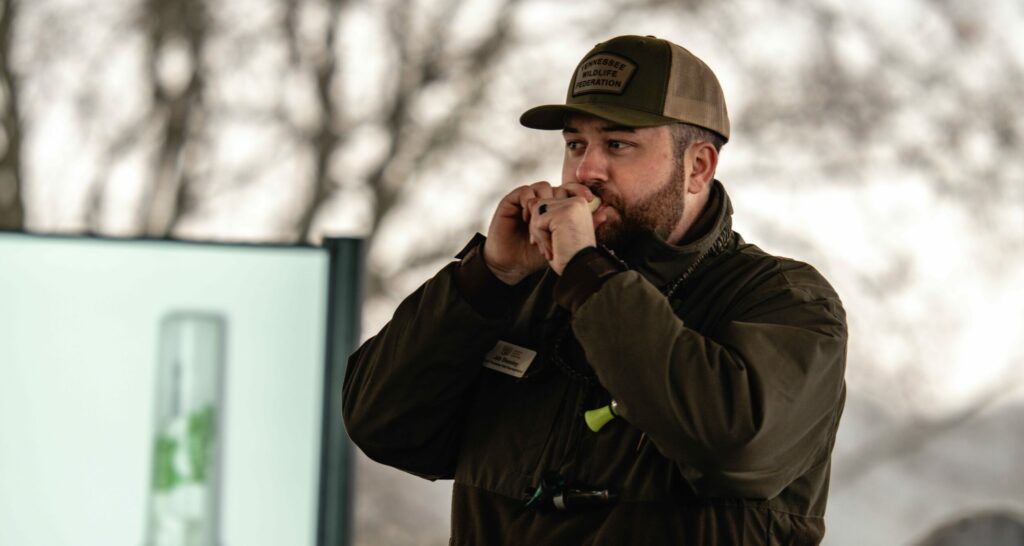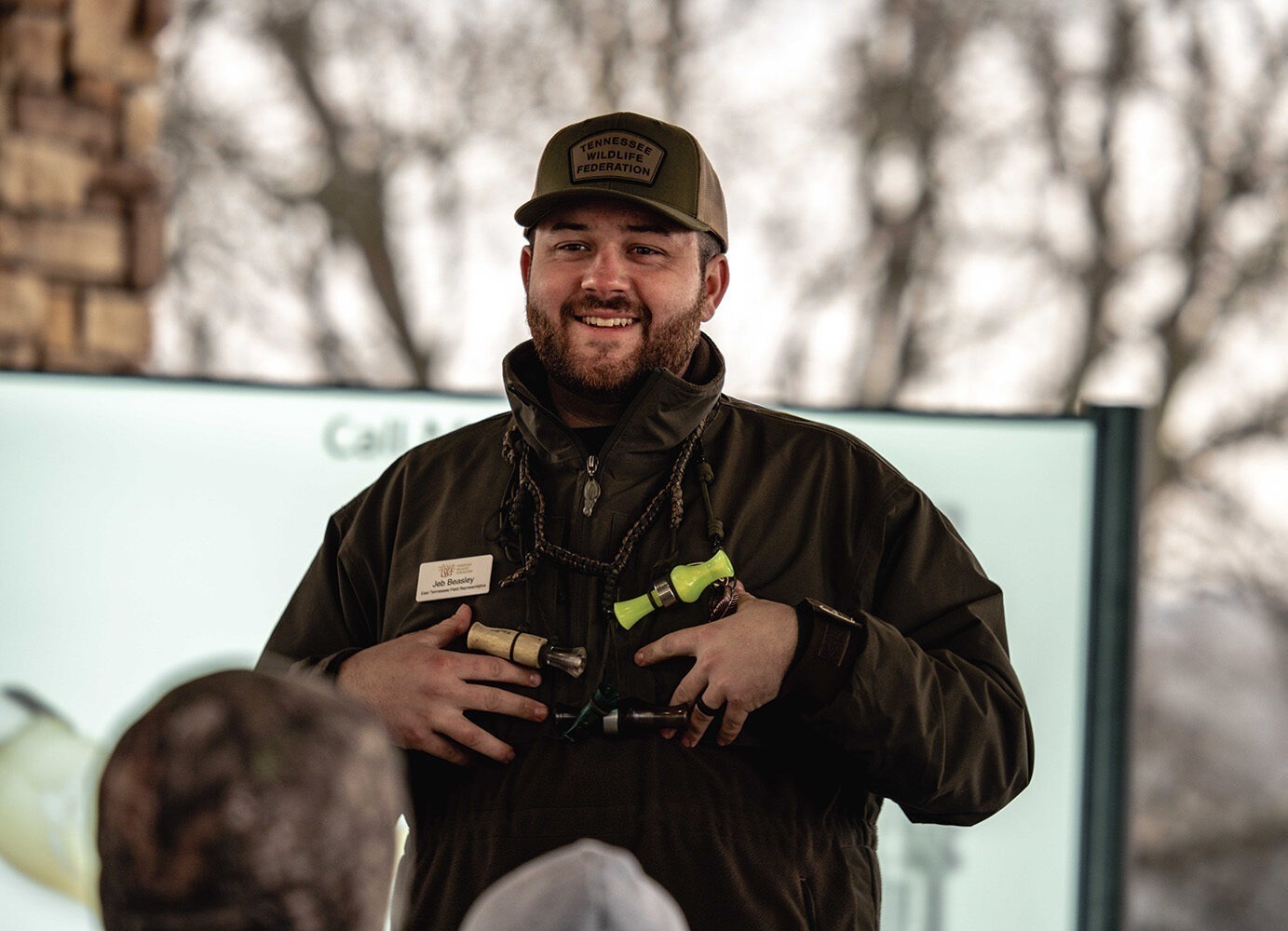One critical aspect of hunting is learning how to mimic wildlife communication. This is particularly important with waterfowl and turkeys in order to attract the birds. In a previous post, we noted that a duck call is one piece of waterfowl hunting gear everyone needs to duck hunt like a pro. These instruments are used to mimic the sounds of ducks and attract them to the hunter’s location.
Experienced hunters understand that less is more.
There are numerous calls one can master such as the feed call and the lonesome hen. However, experienced hunters understand that less is more. Ducks hear calls all season long, from Canada to the most Southern States. Instead, focus on when you are calling. Be patient. Wait until you have a clear visual of the ducks. Then call at “tips and tails,” meaning call when they are turning and looking at you and when they are turning away from you.
You just need to practice a few standard calls: the basic quack, greeting call, and comeback call.
The basic quack is the fundamental call that all hunters should learn first. It’s a series of three to five singular quacks that communicates to the waterfowl that their flock has located a safe spot with food. This sequence should be implemented when ducks are in moderate to close range at 30 yards. Mastering this makes learning the other calls such as the greeting call less difficult.
A greeting call is a five-to-nine note call enacted when ducks are flying overhead at around 100 yards. If the birds begin to fly in closer, soften the call and consider switching to the basic quack call. This is a more realistic sequence that should help you find success.
If the ducks make a U-turn away from your decoy spread, this is where the comeback call comes into play. A comeback call is a hard five-to-seven note call pleading to the ducks to turn around. Executed correctly, these calls can help land you your daily bird limit.

Learning How to Call
Learning to be a proficient caller is about controlling your breath. You want to use your diaphragm—think about drawing air from deep in your gut and not from your lungs. You control the pressure of the air coming from your mouth to control the tone you want to come out of the call. Each call has a different tone and cadence.
Practice is crucial!
One of the best ways to learn how to reproduce a duck’s sound is to hear them in their natural environment. Take some time and venture out to wildlife management areas and listen to them live.
Additionally, YouTube offers a variety of educational resources for hunters. Channels like GoTrails post content on a variety of wild birds for viewers to learn bird behavior in their natural habitat. Surviving Duck Season provides knowledge on everything involving hunting waterfowl. Many duck call brands have instructional videos on their website that demonstrate how to properly use their call in a hunting scenario.
Choosing a Duck Call
These attention-seeking devices come in many shapes, sizes, colors, reeds, materials, and prices. It’s all about finding what feels right for you.
Wooden duck calls are generally softer in tone and are more realistic sounding. However, they don’t do well with humidity and temperature changes, which can make them tricky to maintain and master. Acrylic and polycarbonate calls are both durable and louder options and are less likely to stick during a hunt. This can happen when moisture is trapped in the call from your saliva causing the reed(s) to stick to the call. If this happens, blow the call through the reverse side to free the reed(s) up.
Just getting your feet wet into duck hunting?
Our Hunting and Fishing Academy team members recommend using a double-reed call because it’s easier to learn. The two reeds inside the call vibrate in combination to produce a wide variety of sounds. Manufacturers such as Echo and Haydel’s fabricate an assortment of calls including inexpensive double-reed options for those who are just starting. Once you master those, if you feel the need to upgrade, there are a plethora of options to choose from.
Interested in challenging yourself?
A single-reed call is more strenuous to perfect but has better range and versatility than other calls. RNT, Zink, and Echo manufacture single-reed calls that our team members highly recommend and use themselves.
There’s nothing like the sense of fulfillment you get when you call to and harvest a duck on your own. As outdoorsmen and women ourselves, many on the Hunting and Fishing Academy team have experienced this feeling and are passionate about instilling it into others. Our virtual classes and in-person experiences are here to get you started on that journey to becoming a competent waterfowl hunter.




